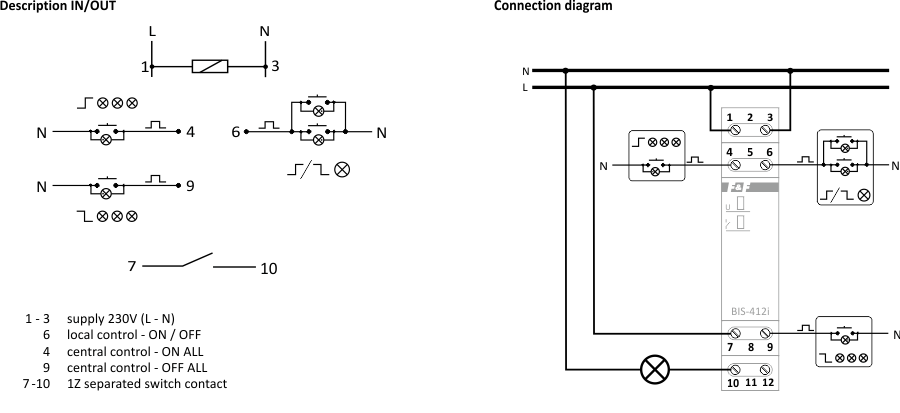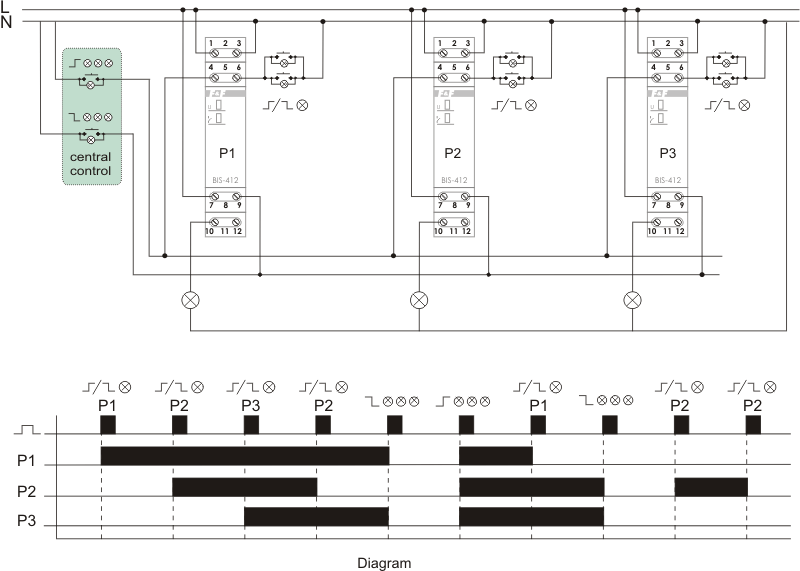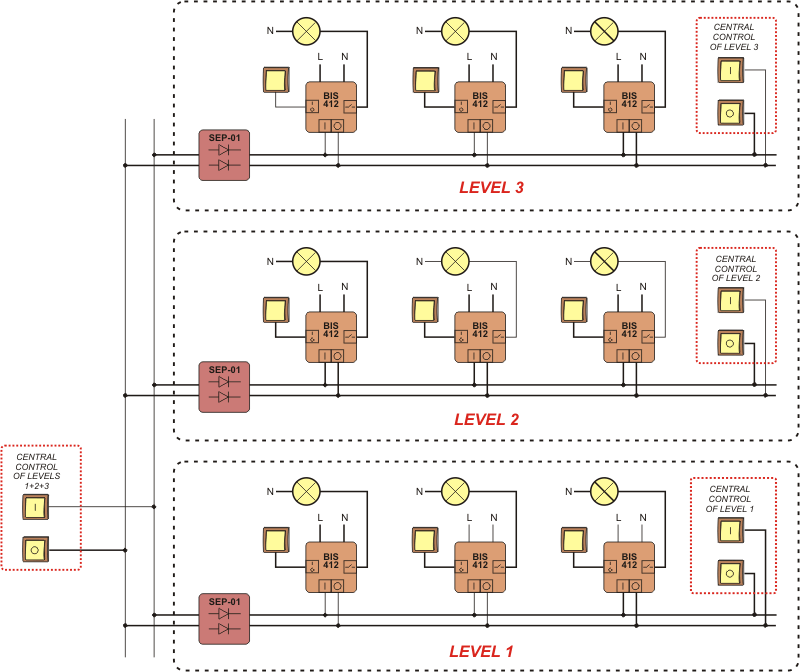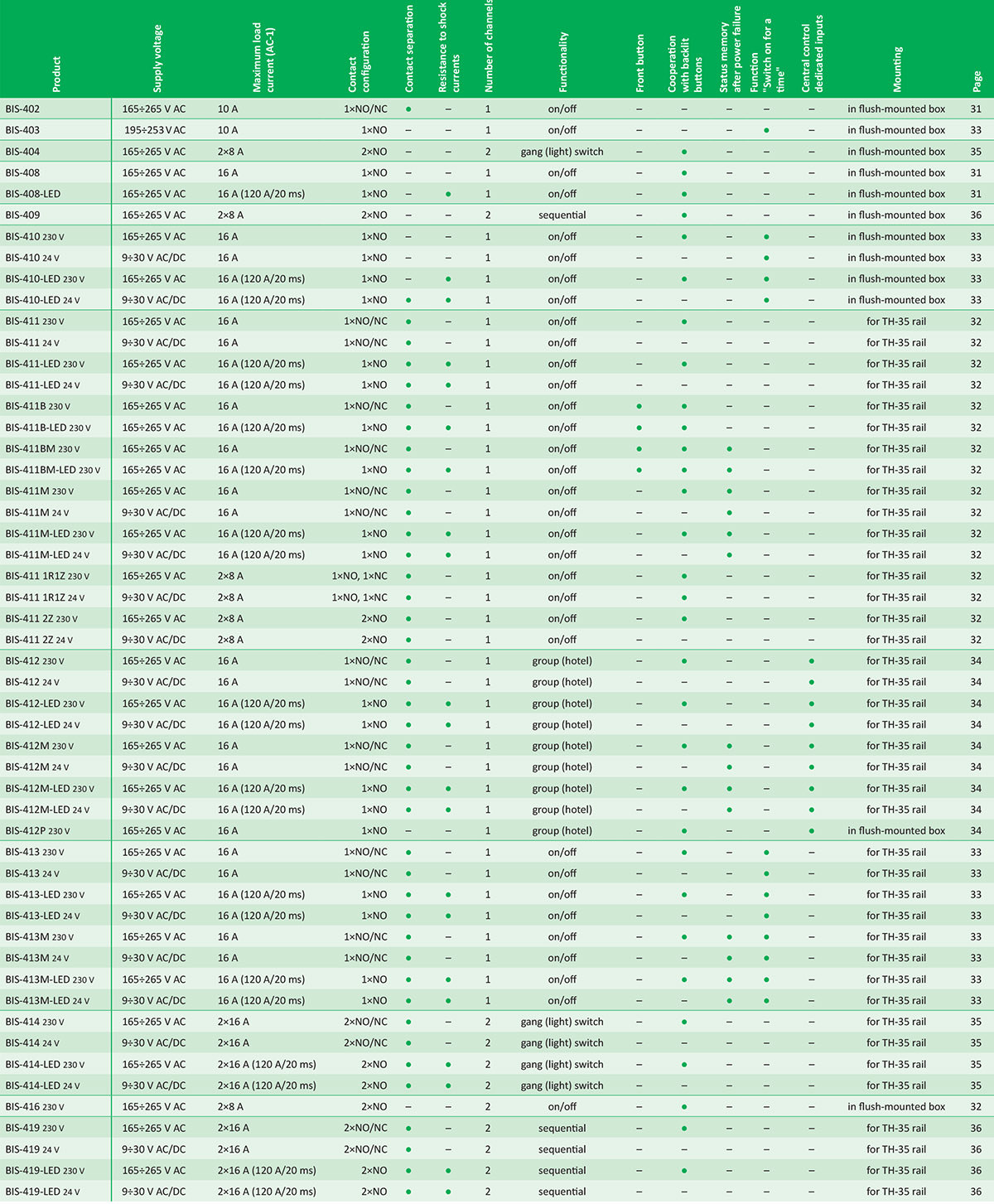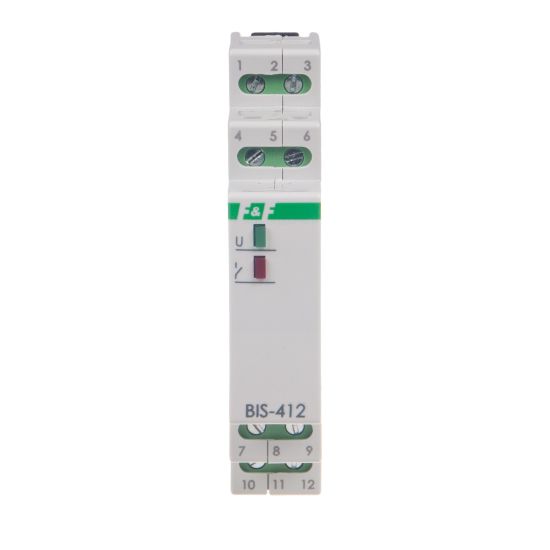





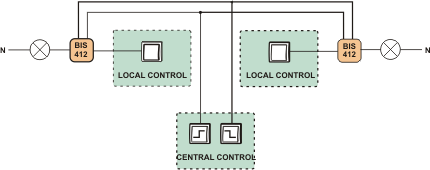
Functioning:
Local control
The receiver is activated after a current pulse that is triggered by pushing one optional momentary push-button ![]() belonging to the local control group. The contact of the relay is switched to the 7-10 position. After a next current pulse, the receiver will be deactivated (the contact of the relay returns to the 7-12 position).
belonging to the local control group. The contact of the relay is switched to the 7-10 position. After a next current pulse, the receiver will be deactivated (the contact of the relay returns to the 7-12 position).
Central control
DEACTIVATE ALL - after a current pulse triggered by pushing the momentary push-button ![]() , all receivers will be deactivated (regardless of their status, i.e. deactivation or activation) that are controlled separately by individual relays. The contact in each relay will be switched to the 7-12 position.
, all receivers will be deactivated (regardless of their status, i.e. deactivation or activation) that are controlled separately by individual relays. The contact in each relay will be switched to the 7-12 position.
ACTIVATE ALL - after a current pulse triggered by pushing the momentary push-button ![]() , all receivers will be activated (regardless of their status, i.e. deactivation or activation) that are controlled separately by individual relays. The contact in each relay will be switched to the 7-10 position.
, all receivers will be activated (regardless of their status, i.e. deactivation or activation) that are controlled separately by individual relays. The contact in each relay will be switched to the 7-10 position.
